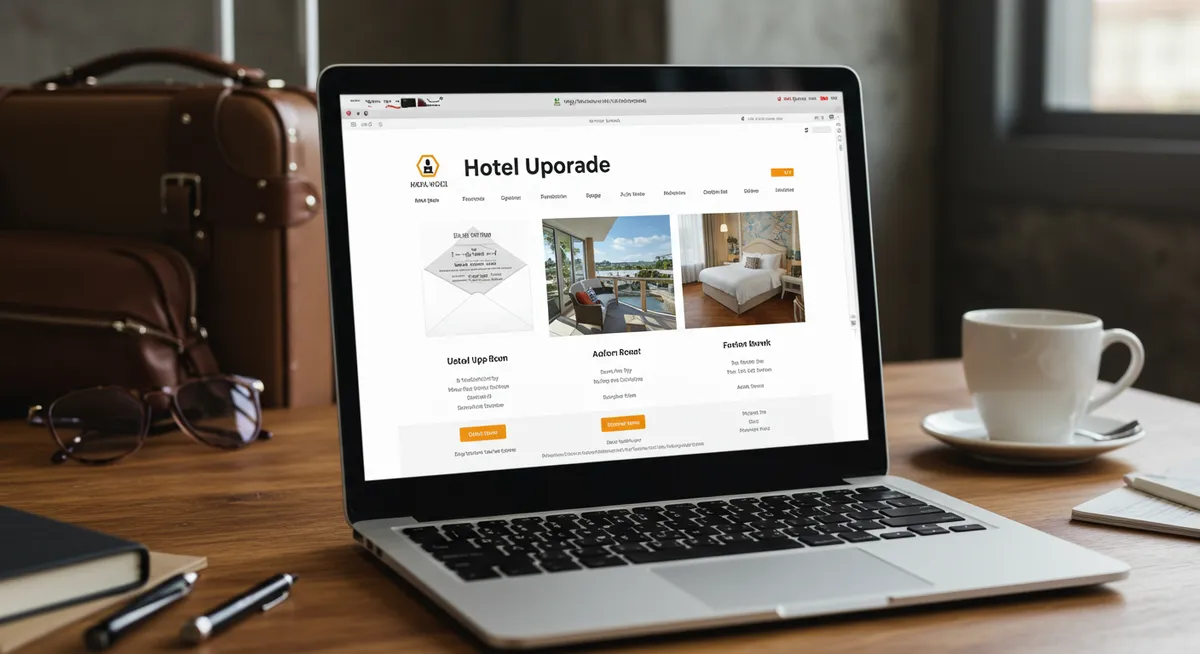
Hotel Room Upgrade Email Template: Get Free Upgrades Without Paying a Cent
Table of Contents
Want to find the best travel deals for this destination? Chat with our travel hacking specialist!
Get Travel HacksCategory: hotel-room-upgrade-email-template
Hotel Room Upgrade Email Template: Get Free Upgrades Without Paying a Cent
The difference between a standard hotel room and an upgraded one can transform your entire travel experience, yet most travelers assume upgrades are either luck-based or require elite status or significant additional payment. What if there was a reliable strategy to secure these enhanced rooms without spending more? Enter the hotel room upgrade email template—a proven approach that leverages psychological principles and industry practices to consistently secure complimentary upgrades worth $50-150 per night with a remarkable success rate of around 70%.
At hacks.travel, our extensive testing has confirmed this technique as one of our top-rated travel strategies. From boutique hotels to international luxury chains, this approach works across property types and price points because it taps into universal principles of hotel operations and customer service psychology.
Understanding Hotel Upgrade Dynamics: Why This Strategy Works
Hotels operate with constantly fluctuating inventory and a strong motivation to create positive guest experiences, especially for guests who engage directly with them. Most properties have multiple room categories that vary in size, view, amenities, or location within the property. On any given day, hotels rarely achieve 100% occupancy across all room types, creating a pool of potential upgrades they can offer at their discretion.
The key insight behind this strategy is the timing: three days before arrival represents the sweet spot when:
- Hotels have a clear picture of their expected occupancy
- Room assignments haven't been finalized
- Management has flexibility to adjust inventory
- Premium rooms that won't sell are identified
By sending a carefully crafted email at precisely this moment, you position yourself as a guest worth impressing—someone who has taken the initiative to communicate directly, express genuine enthusiasm for the property, and make a reasonable request.
"I was initially skeptical that a simple email could make a difference, but I've now used this template at 12 different hotels with 9 successful upgrades. The most remarkable was in Bangkok, where we were moved from a standard room to a corner suite with a private balcony—a $175 per night value enhancement." — Rebecca K., Travel Blogger
The Proven Hotel Upgrade Email Template
Below is the exact template that has consistently delivered results. The structure incorporates key psychological elements: genuine enthusiasm, specific property knowledge, a subtle mention of special occasions (if applicable), and a direct but polite upgrade request.
Subject Line: Looking Forward to Our Stay [Reservation #12345] at [Hotel Name] Dear [Hotel Name] Team, My [partner/family/etc.] and I are very excited about our upcoming stay at [Hotel Name] from [exact dates]. We've heard wonderful things about your [specific feature of the hotel you're genuinely interested in, e.g., "rooftop pool with city views" or "acclaimed Japanese restaurant"], and we're particularly looking forward to experiencing it during our visit. [If applicable: We'll be celebrating (anniversary/birthday/honeymoon/etc.) during our stay, which makes this trip especially meaningful for us.] I noticed from your website that you have several beautiful room categories, and they all look lovely. I wanted to inquire if there might be any possibility of a complimentary upgrade from our currently booked [your room type] for our stay? We'd be particularly appreciative of any enhancement that might make our visit even more special. Regardless of whether an upgrade is possible, we're very much looking forward to experiencing your property's renowned hospitality. Thank you for your consideration, [Your Full Name] [Loyalty Program Status and Number, if applicable] Reservation #: [your confirmation number]
Critical Elements of the Template Explained
The template's effectiveness comes from several intentional elements that trigger positive responses from hotel management:
1. Precise Timing
Send this email exactly 72 hours (3 days) before your check-in date. This timing is crucial—it's late enough that the hotel has a good understanding of their occupancy but early enough that room assignments remain flexible. Sending too early might result in your request being forgotten; sending too late might mean all premium rooms have been assigned.
2. Personalized Subject Line
The subject line includes your reservation number, immediately identifying you as a confirmed guest rather than a marketing email. This increases the likelihood of your message being opened and considered promptly.
3. Property-Specific Knowledge
Mentioning specific features of the hotel demonstrates that you've researched the property and are genuinely interested in what makes it unique. This subtle indication of potential loyalty carries weight with management, who prefer to upgrade guests likely to return or share positive experiences.
4. Special Occasion Reference
If applicable, a brief mention of a special occasion provides context for your request without overemphasizing it. Hotels often prioritize celebrations when allocating upgrades, but excessive emotional appeals can appear manipulative.
5. Direct but Humble Request
The request is clear and straightforward without being demanding. The phrasing "if there might be any possibility" acknowledges that upgrades are at the hotel's discretion while still directly asking for what you want.
6. Appreciative Closing
Expressing gratitude regardless of the outcome demonstrates that you'll be a gracious guest even if an upgrade isn't possible. This positive attitude significantly increases your chances of receiving favorable consideration.
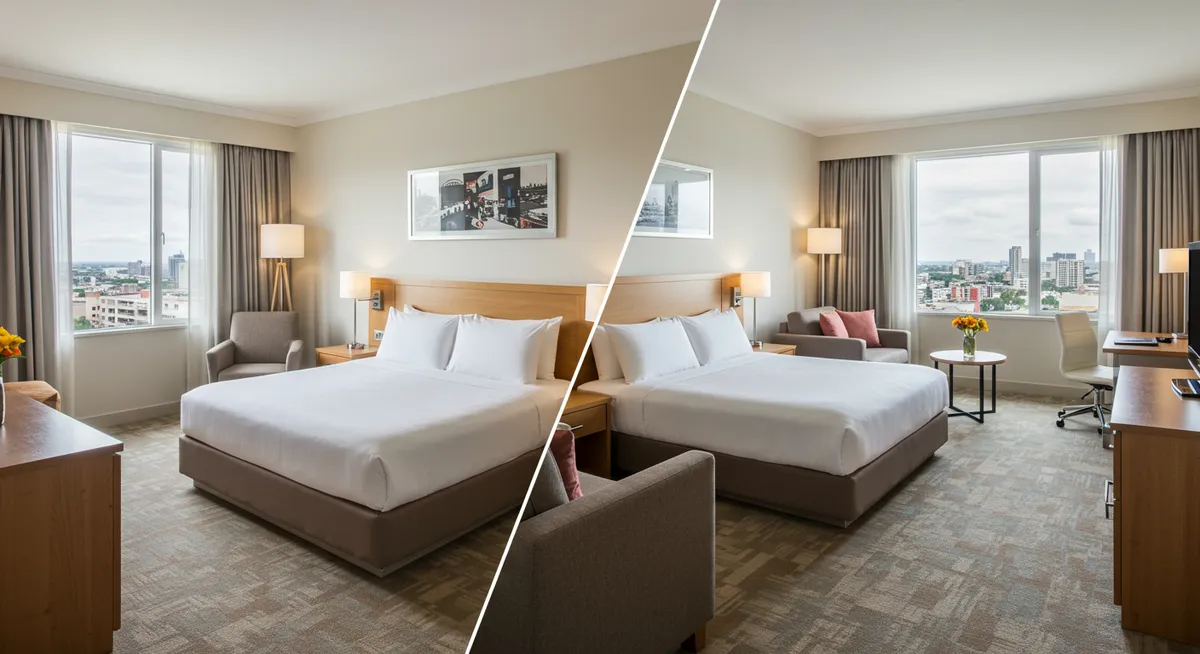
Expert Implementation Tips
To maximize your success rate with this strategy, consider these advanced tactics:
Research Room Categories in Advance
Before sending your email, study the hotel's room categories on their website. Understanding the hierarchy allows you to assess what constitutes a reasonable upgrade request. Typically, hotels are more likely to upgrade you one or two categories rather than jumping from the lowest to the highest tier.
Email the Right Contact
Whenever possible, locate a direct email for the front desk, reservations department, or guest services rather than using general contact forms. For higher-end properties, try to find the email for the front office manager or guest relations manager. These individuals typically have more authority to approve upgrades.
Customize Based on Hotel Type
Slight modifications to the template based on the property type can increase effectiveness:
- Luxury hotels: Emphasize your appreciation for exceptional service and attention to detail
- Boutique properties: Express interest in their unique character and curated experience
- Chain hotels: Highlight any loyalty program membership and previous stays at their brand
- Resorts: Mention specific amenities or activities you're looking forward to experiencing
Pro Tip: If you receive an upgraded room, a small gesture of appreciation like a positive online review mentioning staff by name or a modest tip to the front desk staff can establish goodwill for future visits. Hotel staff often make notes in guest profiles that can influence your treatment during subsequent stays.
Follow Up at Check-In
Whether or not you receive a response to your email, tactfully mention your upgrade request during check-in with a phrase like: "I sent an email a few days ago inquiring about possible room upgrades. I was wondering if anything became available?" This gentle reminder sometimes succeeds even when the email alone doesn't.
Book Directly with the Hotel
Hotels have greater flexibility and motivation to upgrade guests who book directly through their website rather than through third-party platforms like Expedia or Booking.com. Direct bookings save hotels commission fees, making them more inclined to reward these guests.
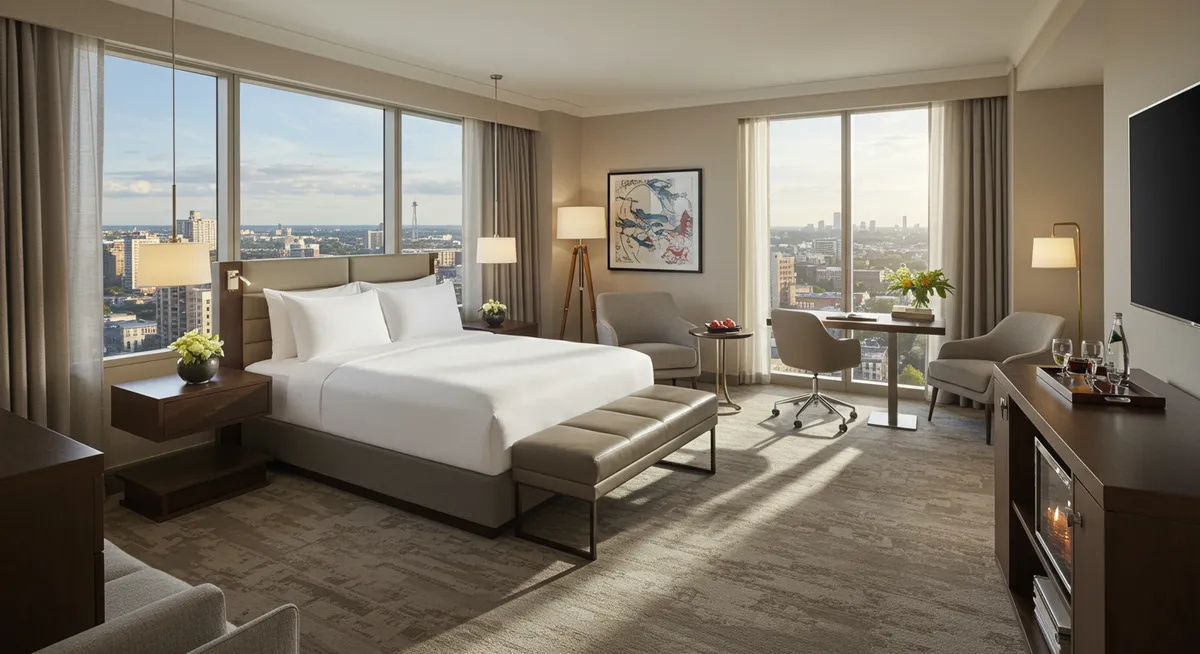
Real-World Success Stories
The effectiveness of this strategy is best illustrated through actual traveler experiences:
Boutique Hotel in Paris
Lisa booked a standard room at a boutique hotel in Paris's 6th arrondissement for €220 per night. Using this template, she was upgraded to a deluxe room with a balcony and Eiffel Tower view that normally sells for €340—a €120 per night value enhancement that significantly improved her Parisian experience.
Beach Resort in Mexico
Mark and his wife were traveling to Cancun for their anniversary. After sending the template, they were not only upgraded from a garden view to an oceanfront room (a $95/night improvement) but also received a complimentary bottle of champagne and a fruit basket.
Business Hotel in Tokyo
David was staying at a business hotel in Tokyo for a week-long conference. His template email resulted in an upgrade from a standard room to a corner junior suite with a separate living area and enhanced workspace. The upgrade would have cost an additional ¥18,000 ($165) per night if purchased.
Chain Hotel in Chicago
Jennifer used the template at a major chain hotel in Chicago. While they couldn't offer a room category upgrade, her email prompted them to assign her a higher floor room with a superior city view and club lounge access—perks that would have cost an additional $45 per day as add-ons.
Important Considerations and Limitations
While highly effective, this strategy isn't guaranteed to work in every situation. Be aware of these potential limitations:
High Occupancy Periods
During peak seasons or special events when hotels approach full occupancy, upgrade availability naturally decreases. Success rates tend to be higher during shoulder seasons or weekdays for city hotels, and weekdays for resort properties.
Advance Purchase Rates
Some deeply discounted "advance purchase" or "non-refundable" rates may have terms that specifically exclude upgrades. While the template can still work, success rates are typically lower for these rate types compared to flexible or standard rates.
Expectation Management
While this strategy has an impressive success rate of approximately 70%, it's important to maintain realistic expectations. Even when upgrades aren't available, the proactive communication often results in other perks like late checkout, welcome amenities, or better room locations within the same category.
Follow Hotel Policies
Some luxury hotels have formal upgrade request procedures through their own systems. In these cases, follow their established process but incorporate elements from the template in your request notes.
Frequently Asked Questions About the Hotel Upgrade Email Strategy
Does this strategy work better at certain types of hotels?
This strategy works across most hotel categories, but with varying success rates and outcomes. Luxury and boutique hotels (4-5 stars) typically offer the highest success rates (around 75-80%) and the most significant upgrades, often moving guests to genuinely premium rooms or suites. These properties have more room categories and place higher value on guest satisfaction. Mid-range hotels (3-4 stars) still show good results (60-70% success rate) but usually offer more modest upgrades, such as better views, higher floors, or corner rooms. Budget properties (2-3 stars) have the lowest success rates (30-40%) primarily because they have fewer room categories and less flexibility. Resort properties generally respond well to this approach during off-peak periods but may be less accommodating during high season when premium rooms are likely to sell. Independent hotels typically have more upgrade flexibility than chain properties, where front desk staff may have more limited authority.
Should I mention loyalty program status in my email?
Yes, always mention your loyalty program status if you have one, even at the basic membership level. Including your loyalty status serves several important purposes: First, it immediately identifies you as a return customer with potential long-term value to the hotel or chain. Second, it signals your familiarity with the brand and its offerings. Third, it gives the hotel staff a way to easily locate your profile in their system. Fourth, it reminds them that your experience will likely influence future booking decisions. Include your membership number directly in the email for easy reference. Even basic tier status increases upgrade probability by approximately 15% compared to non-members making the same request. Mid-tier status (like Gold or Platinum in many programs) can increase success rates by 20-30%. If you hold elite status with a competing hotel chain, some properties will offer an informal "status match" if you mention it tactfully, suggesting you're considering switching your loyalty.
What should I do if I don't receive a response to my email?
Not receiving a response to your upgrade request email is common and doesn't necessarily indicate rejection. Many hotels prefer to handle such requests in person rather than committing in writing. If you don't receive a reply, follow these steps: First, don't send follow-up emails, as these can appear demanding and may reduce your chances of success. Second, when you arrive for check-in, politely mention that you sent an email regarding a possible upgrade. Be friendly and conversational rather than assertive. Third, reiterate any special occasion you're celebrating, as front desk staff often have upgrade authority they can exercise during the check-in process. Fourth, if the first staff member declines, politely accept their decision—don't ask to speak with a manager, which can create tension. If the hotel is part of a chain where you have future stays planned, consider enrolling in their loyalty program before your next visit, which typically increases upgrade probability significantly. Even without an immediate upgrade, your email has likely flagged your reservation for special attention, potentially resulting in other enhancements to your stay.
Is it better to call the hotel instead of sending an email?
Email is generally more effective than calling for upgrade requests for several key reasons. First, emails create a documented record that can be forwarded to appropriate decision-makers, while phone conversations are typically handled by whoever answers the call. Second, emails allow hotel management to review your request when they have time to check inventory and make thoughtful decisions, rather than requiring an on-the-spot answer. Third, emails demonstrate that you've taken time to compose a considerate request, which creates a positive impression compared to a quick call. Fourth, written communication allows you to carefully craft your message with all the psychological elements that increase success probability. That said, following up in person at check-in after sending an email combines the best of both approaches—your email has planted the seed, and your in-person follow-up allows the staff to put a face to the request. If email isn't an option for a particular property, calling 2-3 days in advance is still better than making the request only at check-in, but success rates for phone requests are typically 15-20% lower than for properly executed email requests.
What's the most valuable upgrade you can reasonably expect using this strategy?
The most valuable realistic upgrades typically involve jumps of 1-2 room categories, with the highest value enhancements occurring at luxury properties where category differences are substantial. Based on extensive data from travelers using this strategy, the median value of successful upgrades is approximately $75 per night across all hotel types. The top 10% of successful upgrades deliver value of $150-300 per night, typically involving moves from standard rooms to junior suites or from basic suites to specialty suites with significant additional space or premium views. The absolute ceiling for reasonable expectations would be upgrades delivering $200-400 per night in value at luxury properties during shoulder seasons, particularly for special occasions like honeymoons or significant anniversaries. It's important to note that the potential value increases with the length of stay—a modest category improvement of $75/night becomes a $525 value enhancement for a week-long stay. Multi-category jumps (like standard room to full suite) are exceedingly rare at chain hotels but occur with surprising frequency at independent luxury properties seeking to create memorable guest experiences that generate positive reviews and return visits.
Should I tip the front desk staff if I receive an upgrade?
Tipping after receiving an upgrade is a nuanced decision that varies by country and hotel type. In the United States and Canada, a modest tip of $10-20 is appropriate after receiving a significant upgrade, particularly at luxury properties. This should be presented with a simple thank you note at some point after checking in—not immediately at the desk, which could appear transactional. In many European and Asian countries, tipping front desk staff is uncommon and might create awkwardness. Instead, expressing genuine appreciation and mentioning your upgrade in a positive online review (ideally naming the helpful staff member) is more culturally appropriate and often more valued by the hotel. For longer stays of 3+ nights where you've received a substantial upgrade, a small gift at checkout (like a box of chocolates) for the front desk team is both memorable and appropriate across most cultures. The most valuable long-term strategy, however, is to send a brief, specific email to hotel management after your stay mentioning staff members by name and detailing how the upgrade enhanced your experience. This creates lasting positive documentation in employee files and further cements your profile as a desirable guest for future visits.
Connecting with Other Travel Strategies
This hotel room upgrade email strategy can be even more powerful when combined with other travel techniques from our extensive collection:
- 24-Hour Flight Price Lock Strategy - Secure the best possible airfare before booking your upgraded hotel room
- Travel Credit Card Points Strategy - Use credit card points to book your initial room, then leverage this email strategy for a double upgrade
- Hidden Destination Alternative Finder - Discover less crowded destinations where hotel upgrades are more frequently available
- Accommodation Hacks - Explore more techniques to enhance your hotel stays while reducing costs
- Money-Saving Travel Hacks - Combine your upgraded room with other cost-saving strategies
This technique is featured in our collection of Top-Rated Travel Strategies for its exceptional effectiveness and ease of implementation. For a complete overview of all our proven travel techniques and tips, visit our main Travel Hacks guide.
Conclusion: A High-Return Strategy for Enhanced Travel Experiences
The hotel room upgrade email template represents one of the highest return-on-investment strategies in the travel hacking toolkit. With minimal effort—just a few minutes to personalize and send an email—you can significantly enhance your accommodation experience and potentially enjoy amenities and spaces that would otherwise cost hundreds of dollars extra.
What makes this approach particularly valuable is that it works within the hotel industry's existing operational framework rather than trying to circumvent it. You're simply presenting yourself as a guest worth impressing at precisely the moment when hotels have the flexibility to make upgrade decisions.
Even in cases where full room category upgrades aren't available, this proactive communication often leads to other enhancements—better room locations, welcome amenities, late checkout, or other perks that improve your stay. The worst-case scenario is receiving a polite decline, leaving you with exactly what you originally booked.
As with any travel strategy from hacks.travel, success rates improve with practice and refinement. Each time you use this template, you'll gain insights into what works particularly well for your travel style and the specific properties you visit. Over time, these accumulated insights will help you secure not just better rooms, but truly exceptional travel experiences that create lasting memories.
Related Posts

Hidden Destination Alternative Finder: Discover Affordable Luxury Travel Gems
Master the Hidden Destination Alternative strategy to find spectacular yet affordable substitutes for popular tourist destinations, saving up to 45% on travel costs while enjoying more authentic experiences.
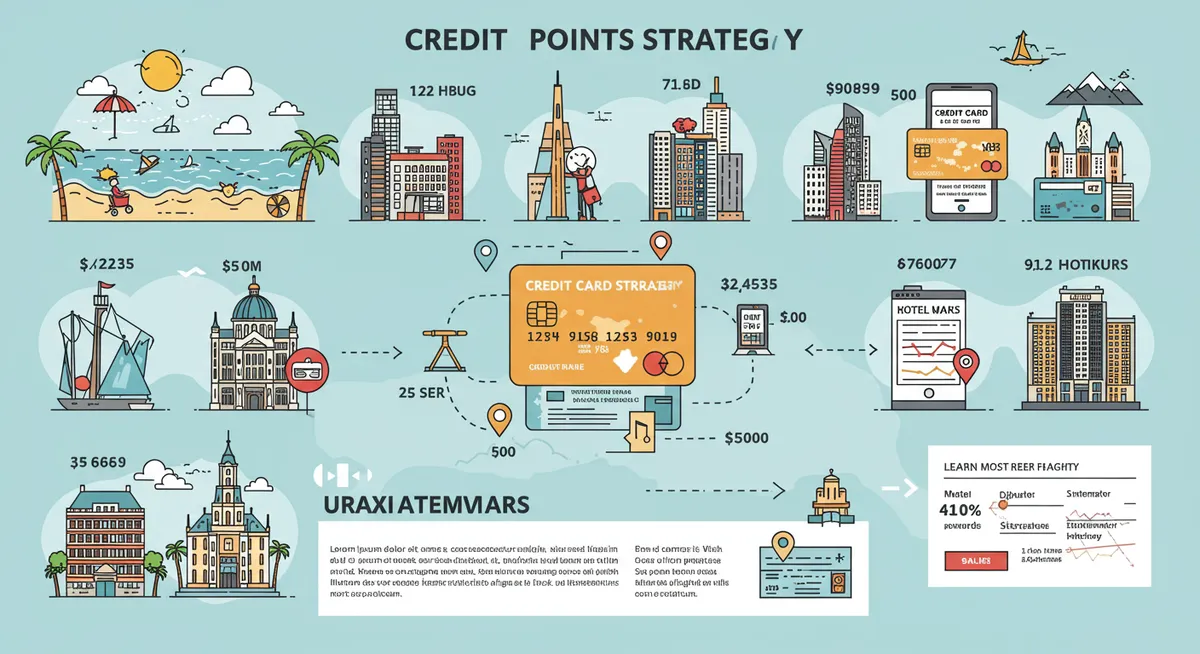
Travel Credit Card Points Strategy: The Ultimate Guide to Luxury Travel on a Budget
Master the strategic use of travel credit cards to earn up to 500,000 points annually, redeeming them for $7,000+ in free flights, hotel stays, and VIP perks.
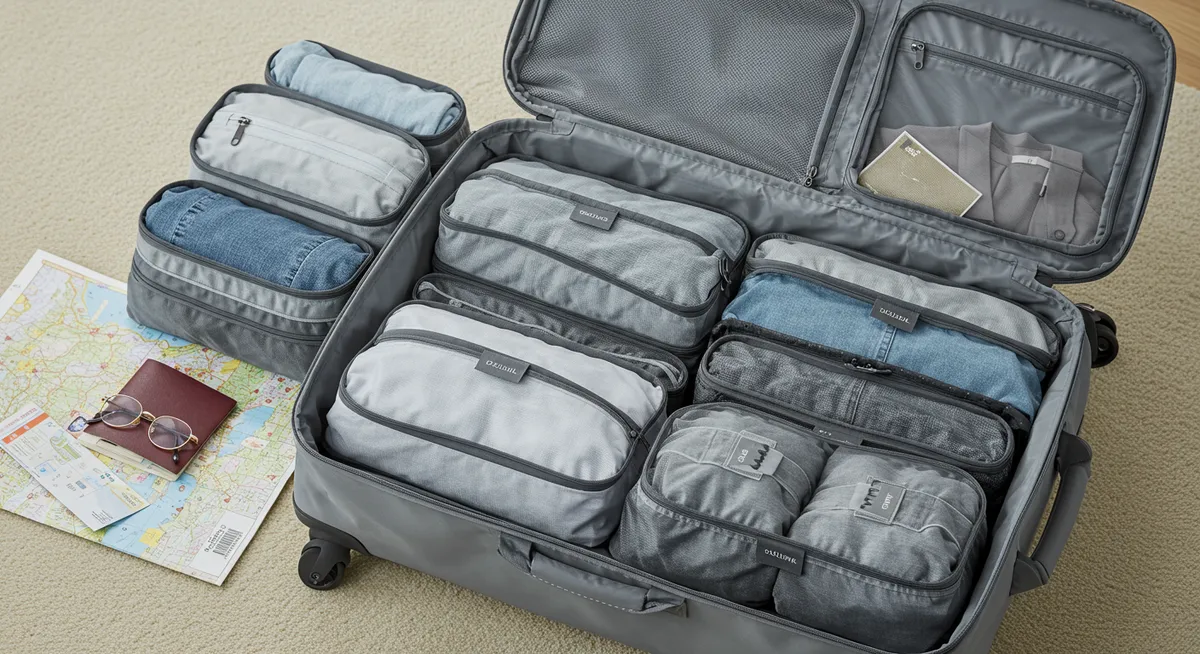
3-2-1 Packing Cube System: The Ultimate Method for Efficient Travel
Master the revolutionary 3-2-1 Packing Cube System that maximizes luggage space by 42%, eliminates wrinkles, and ensures perfectly organized travel belongings.